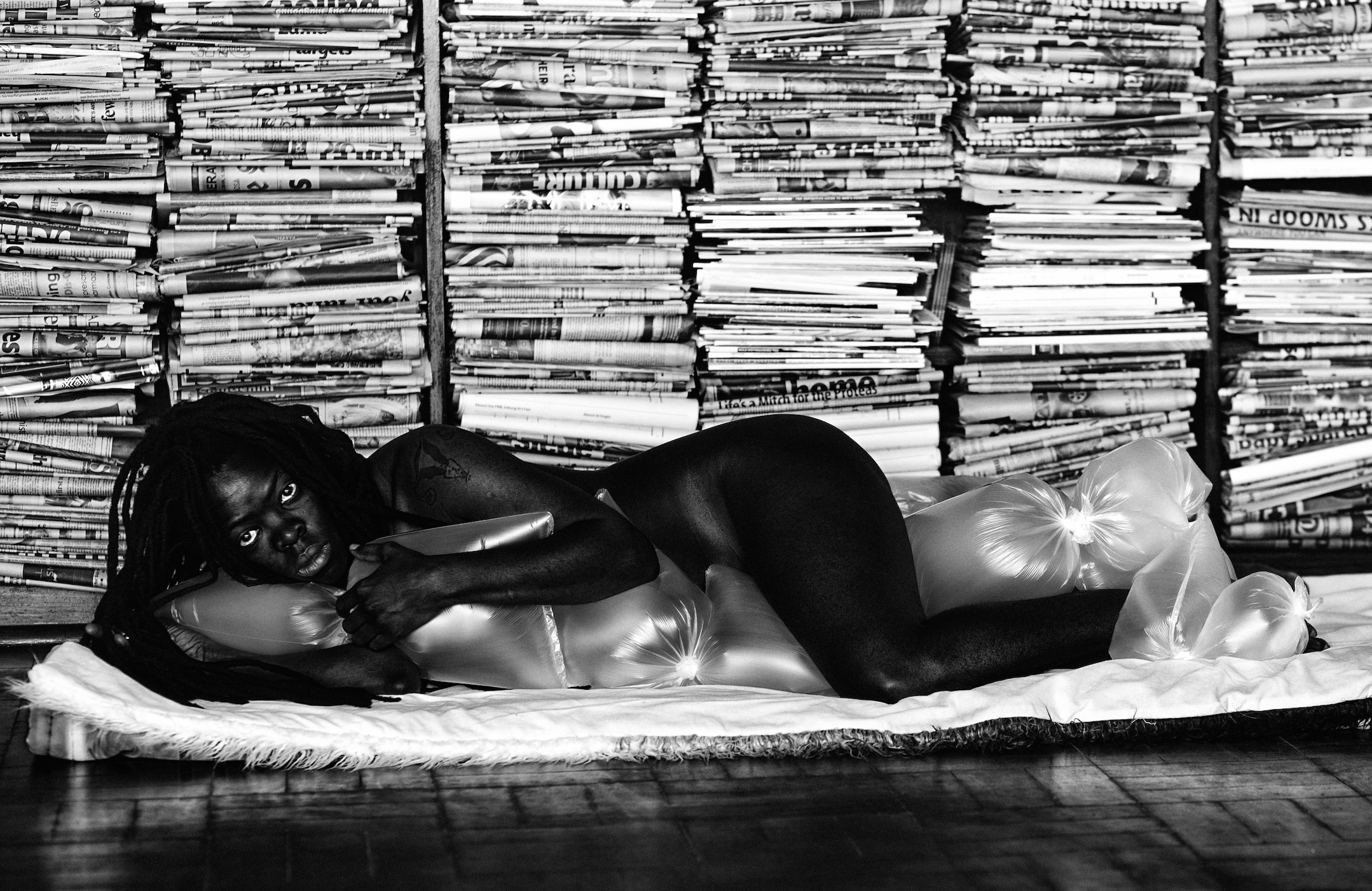” My mission is to rewrite a queer black and trans visual history of South Africa, to raise awareness of our resistance and existence at the height of hate crimes in our country and elsewhere. “. So Zanele Muholi summarizes his work, to be discovered absolutely. And if these few words of the artist have not yet convinced you, here are three more reasons to go there:
To discover tender and intimate images
Visitors to the MEP stroll among the bodies and faces of anonymous people whose history unfolds before their eyes. A powerful and moving exhibition, which begins with photographs of couples in love, healing each other the wounds left by the apartheid regime, by the prevailing racism and homophobia.
In this first series, Muholi denounces the idea that queer life is “un-African”, linked to the belief that homosexuality is a “colonial import to Africa”. They invite us to free ourselves from a patriarchal vision that imposes heterosexuality as the norm to follow. An approach that continues with the images of queer beauty contests, where we discover the portraits of participants eager to “ change mindsets within the communities these people live in, the same communities where they are most likely to be harassed, or worse Muholi continues.
Strong images that send the queerphobic and transphobic stereotypes of which these people are too often victims into a waltz.
See this post on Instagram
Rethink representations
” Since slavery and colonialism, images of African women have been exploited to propagate heterosexuality and white patriarchy, and these systems of power have shaped our daily lives so much that it has become difficult to represent ourselves as we truly are in our respective communities. . emphasizes Zanele Muholi, who explores and questions, in a series of self-portraits, representations of black women throughout history.
In grandiose shots, the artist underlines the systemic violence and stereotypes conveyed by these representations. A series inspired, in particular, by the personal story of the artist, whose mother worked as a domestic worker for a white family for more than 40 years, providing alone for the needs of her eight children.
See this post on Instagram
To discover this essential archival work
In this retrospective, visitors immerse themselves in the story of a South Africa ossified by discrimination. We especially discover the faces of survivors of hate crimes (perpetrated because of gender, sexual orientation, skin color).
In a series of colorful images, Muholi shows places emblematic of segregation, such as beaches, reserved for whites during apartheid. The photographed subjects reinvest these spaces from which they have been violently excluded: “ We ‘queer’ space to access it. We present our transition to the world, to ensure that trans Black bodies are also part of the public space. We owe it to ourselves explains Zanele Muholi.
A work completed by a series of portraits, conceived as a way to commemorate and celebrate the life of the LGBTQIA+ community in South Africa: “ It’s important to mark, map and preserve our moments/movements through visual histories for the record and for posterity so that future generations know we were there. “.
In this same effort of memory, the exhibition concludes with a reading room, retracing the political and cultural history in which the work of Zandele Muholi is inscribed. A chronological fresco covers the walls, from the apartheid era to the birth of queer activism, recounting the resistance of the LGBTQIA+ community in the face of discrimination. An essential testimony, and a visual slap, carried by sublime and poetic photos.
Cover image: Zanele Muholi / MEP
More articles about
Rights of LGBTQI+ people
-
Menstrual leave and gender change: why Spain is ahead of Europe
-
What is Oculus, Russia’s new tool to track “LGBT propaganda”?
-
Transphobia: 5 key dates to understand the controversies around JK Rowling, from 2018 to 2023
-
Mascare: “Cabaret is an art that is not limited to one genre”
-
Recommended for girls and boys, the papillomavirus vaccine is still avoided in France
Source: Madmoizelle
Mary Crossley is an author at “The Fashion Vibes”. She is a seasoned journalist who is dedicated to delivering the latest news to her readers. With a keen sense of what’s important, Mary covers a wide range of topics, from politics to lifestyle and everything in between.





